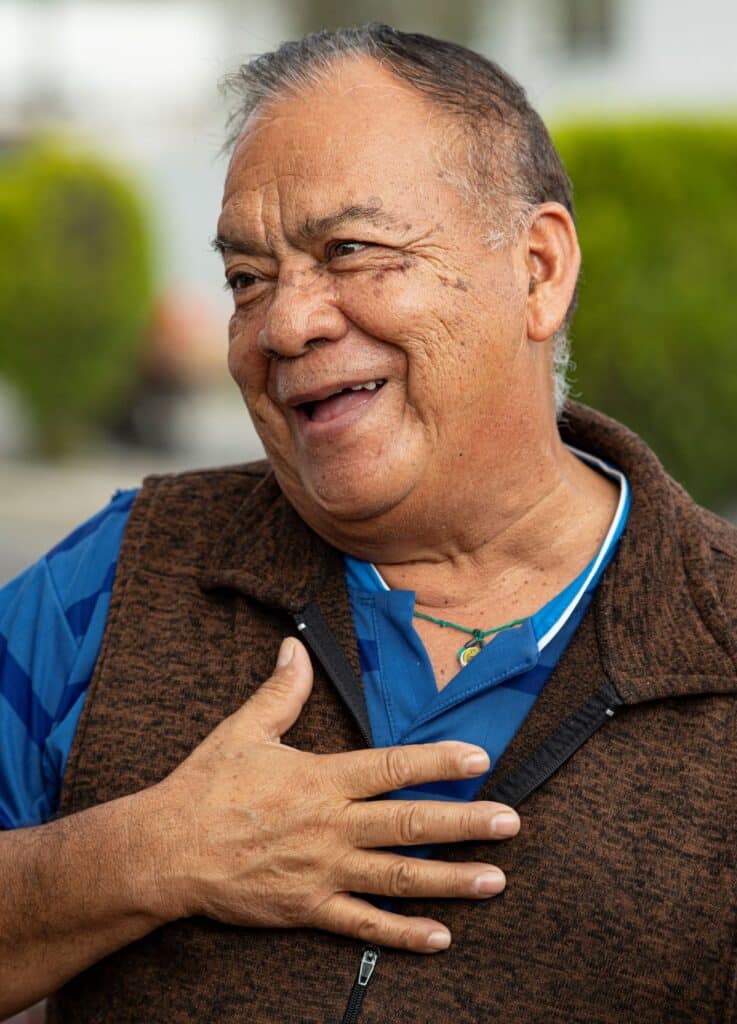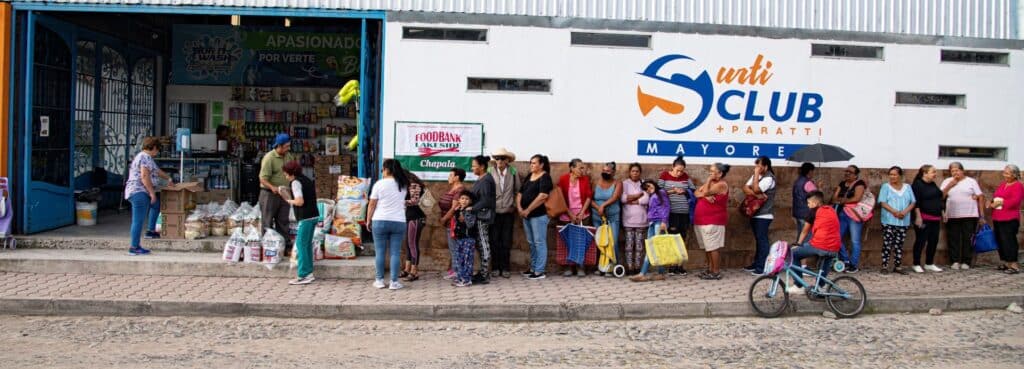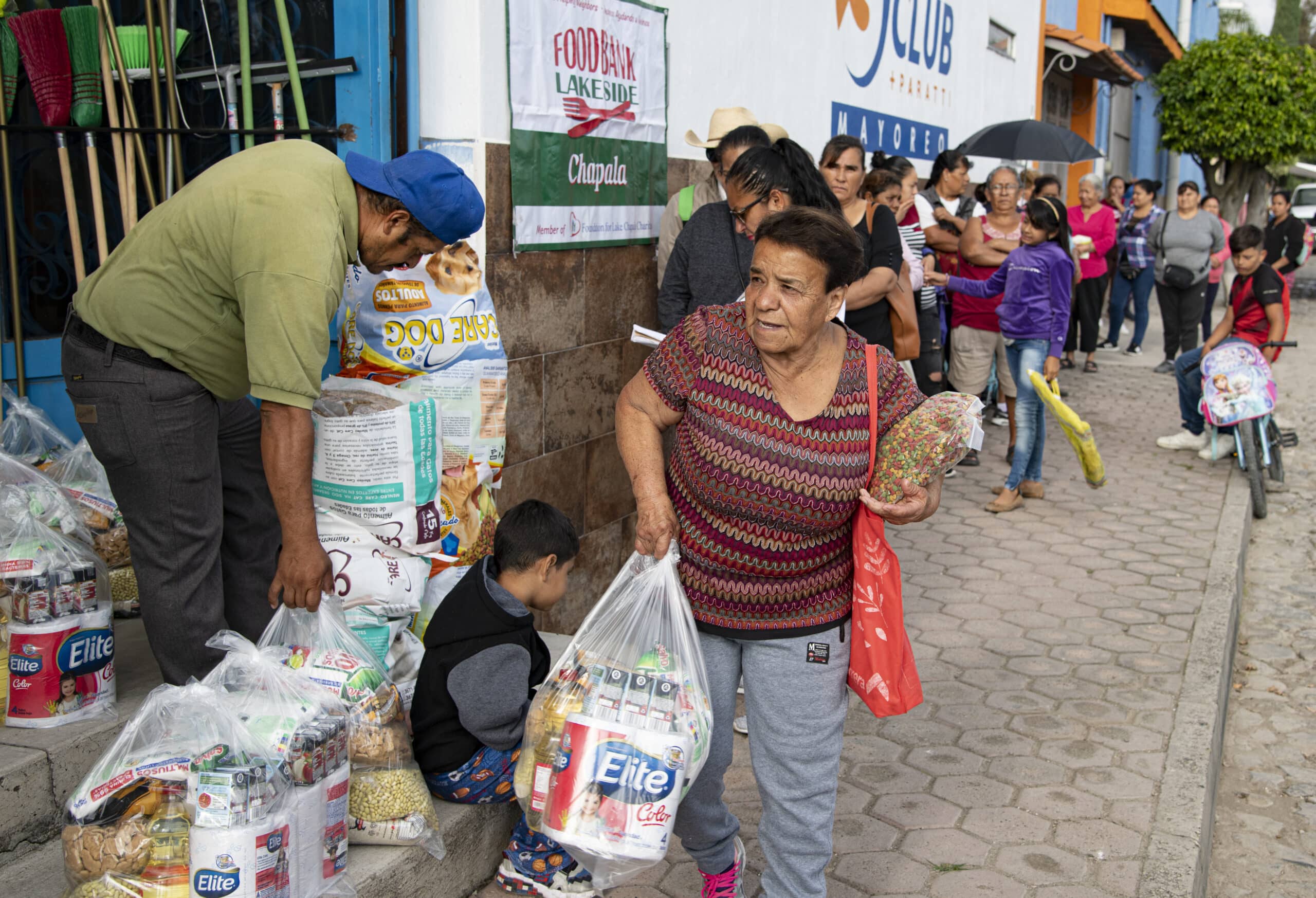When COVID came, Rogelio Lopez could see the impending loss of his late-life career singing and playing live music at crowded events. Then, seeming to drive the point home, he got COVID himself.
“I got sick, and I was the sole provider for my family,” he said through an interpreter, recalling how the pandemic enveloped him several years ago. “So, someone recommended me for help from the food bank.”

Thus, the now-68-year-old Chapala resident became a recipient of FoodBank Lakeside’s monthly despensas – large bags of basics such as beans, rice, oats, cooking oil, toilet paper and eggs. For the next nine months, he benefitted from the monetary donations to FoodBank that are used to buy despensas.
He was so impressed with the organization’s work that, after recovering from COVID but before finding work, he became a FoodBank Lakeside volunteer.
Now, as COVID concerns diminish, he is getting gigs again, to play keyboard and sing – “for birthdays, for quinceañeras, for anniversaries, for divorces,” he said, laughing.
And with the work, Rogelio has stopped taking despensas – while continuing his volunteer work.
His smiling face now can be seen routinely on Saturday mornings outside Surtidor de la Ribera, a central Chapala grocery and cleaning-products store where despensas are distributed to those still in need.

The despensas are lined up, ready for donation as dozens of community residents form a line to await them. Mostly mothers and older people, some bringing two-wheeled handcarts, others large bags. Several grip children who are there to help, as well as to be watched.
While Rogelio no longer needed food donations, “I noticed neighbors and family members who didn’t have enough, so I recommended or notified the FoodBank that they were good candidates to receive despensas,” he said.
FoodBank Lakeside doesn’t just give away despensas to anyone. Key volunteers include Local Coordinators, who live in the neighborhood they serve and who get to know their neighbors and check routinely to determine who warrants despensas and who now can financially get by without them.
As Rogelio talks, a woman who had been waiting in line approaches him and thanks him for what he does.
“I have always wanted to help,” Rogelio said. He used to work as an emergency medical technician for Cruz Roja (the Mexican Red Cross).
“My parents taught me at a young age that helping others is one of the beautiful things you can do. It’s just part of me,” Rogelio said.
He plays some of his musical performances on his mobile phone, demonstrating his ability to reach difficult notes while singing. His business card notes he can play “musica versátil.”
“For everything, I am grateful,” Rogelio said. “God continues to give us the power to help our Mexican brothers and sisters. I’m really thankful for the FoodBank providing so much help.”

